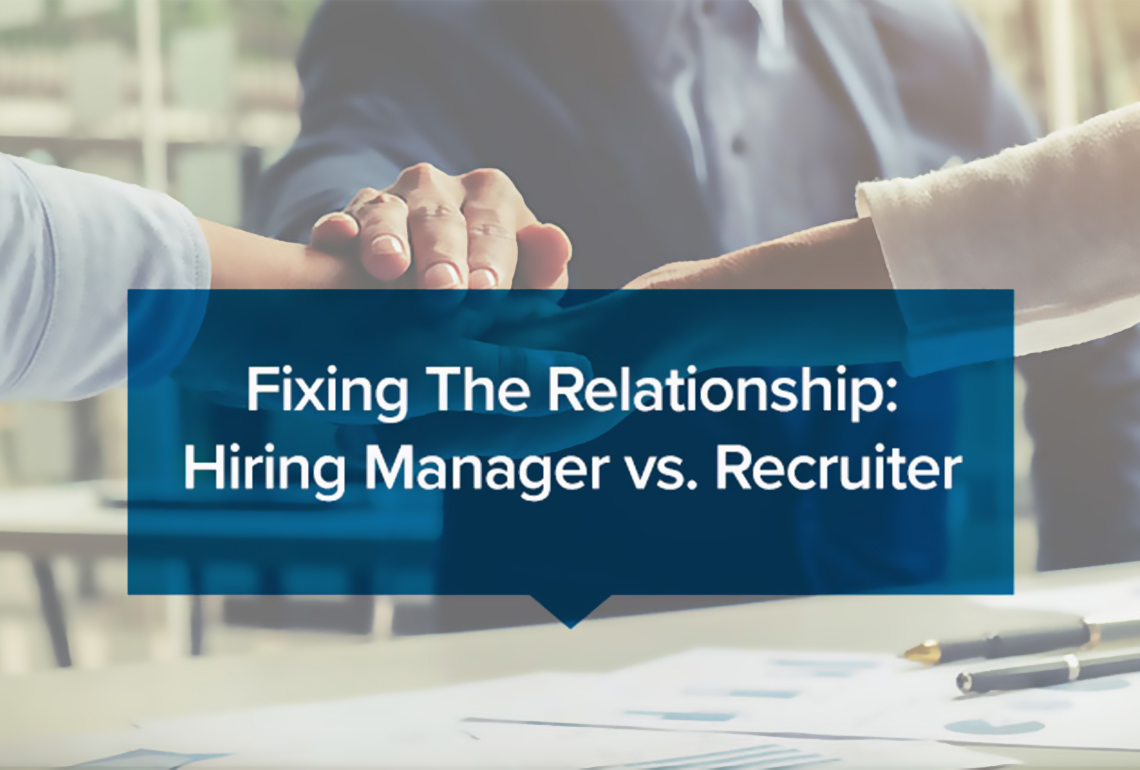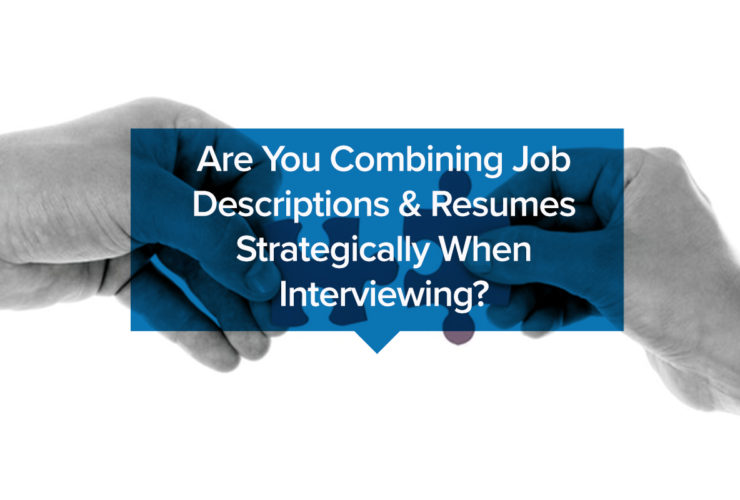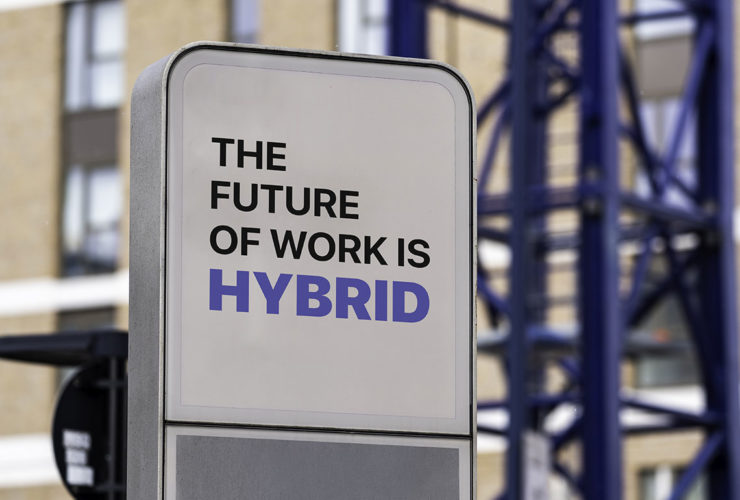The building of work relationships
There are numerous dynamics within an office that need to work effectively together but often don’t, including:
- Sales and marketing
- Technical and multiple functional departments
- Hiring managers and HR/recruiters
In each case, the reasons for the chasm may be different. Sales teams typically have different incentives (quotas) than marketing (“branding”) teams do. Because of four generations currently sharing the workplace, oftentimes people don’t fully understand what IT does, creating friction. (“Don’t they change my password?”) And now for maybe one of the greatest chasms of them all: the issues in relationships between hiring managers and recruiters.
The core relationship: hiring manager vs recruiter
The goal is simple. Find the best qualified, interested and available talent on the market. If the goal is simple, the hiring manager understands what he/she needs and the recruiter is a great partner, why after decades of working together are we still debating this topic?
There are many reasons. It will vary by company and/or the people involved. But in general, 3 of the more common ones are:
- Context of the need
- Lack of domain knowledge on the part of the recruiter
- Expectations
Context of need
Hiring managers, often experts in their space, lack the ability to effectively share their needs. They don’t provide (or sometimes know) the exact context of what they need. This creates a gap in the hiring process which creates inaccurate expectations, leading to a poor relationship with the recruiting professional. The problem is easily fixed but takes a partnership between both parties.
Lack of domain knowledge
Recruiters, experts in their own field, are not likely to possess experience in every profession they’re responsible for recruiting. This is not a bad thing, but for the grief given to the hiring manager on their expertise we also have to examine possible shortcomings of the recruiter.
Most recruiters can be considered generalists. Just as a recruiter expects the candidate to have “industry experience,” so too does the hiring manager expect that their recruiter has industry experience.
That’s reasonable.
Expectations
Goals placed on recruiters are often unrealistic and from kickoff to strategy and execution, the expectations are often skewed. Hiring managers view themselves as too busy to be deeply involved // assume recruiters have the expertise. When candidates are submitted, or hours pass with no activity, the floodgates to criticism open.
If we want better hires, though, we need to improve this basic relationship. So how do we do that?
The trite answer most articles give is…
“Improve communication between the hiring manager and the recruiter.”
Yes, of course. That’s the No. 1 goal. But how would someone go about doing that?
One approach to hiring manager vs recruiter relationship
These are the steps you can follow:
- The hiring manager prepares a one-sheet (not just the job description) on what he/she needs.
- The one-sheet includes a description of the pain point(s) this hire will solve, desired skills, and top 3-5 most important skills (to avoid just listing everything under the sun).
- Hiring manager and recruiter meet for 1 hour, initially.
- They go over the one sheet and at the midpoint mark, the recruiter explains back to the hiring manager what they are looking for.
- Now there’s some type of alignment.
- They agree on a timetable and # of candidates presented.
- The recruiter can now begin his/her top of funnel work.
- The two parties should touch base for 30 minutes weekly to adjust inputs, discuss strategies, and tweak the screening process.
Is this system perfect? No. Many things can go wrong — much of it around how busy everyone feels. (“Just take the job description, it will tell you everything you need even though it hasn’t been updated in six years.”) But it’s a start.
Another approach to hiring manager vs recruiter relationship
When there is a lack of communication between two parties, what else could be going on?
Oftentimes, as we saw in the bullets above, it comes down to a lack of respect/trust. Bad communication springs from that.
There are often trust issues between hiring managers and recruiters. Hiring managers almost never have the same incentives as HR, for example. That causes a trust/respect chasm because each side is judged differently by their supervisors.
How do you solve a trust issue?
You need a way for each side to feel like it got what it wanted without multiple sacrifices.
Could you apply this idea to technical interviews or the pursuit of tech talent?
You could.
We help hiring managers, recruiters and other decision-makers get true insight into a candidate’s technical prowess prior to investing a hiring manager’s time reviewing partially qualified resumes, coordinating a resource intensive panel interview, or footing the bill for face-to-face interview travel expenses.
Our process is simple: we pair technical experts with candidates in their area of expertise. The technical expert does the vetting.
Hiring managers like the idea because they can now trust that the candidate has the right skills, even if they don’t know how to screen for those skills.
Recruiters like the idea because they don’t have to screen for those skills (would lack functional expertise to do so), and the hiring manager feels more confident.
The trust chasm between hiring managers and recruiters begins to be repaired.
As a recruiter, this model allows you to Impress hiring managers and your colleagues by shortlisting the right professionals every time.
Talk about better communication, eh?

Amanda Cole
She has more than 15 years experience developing innovative programs staffed by non-traditional workforce’s including freelancers, paid & unpaid interns, board of directors and skill-based volunteer programs.







